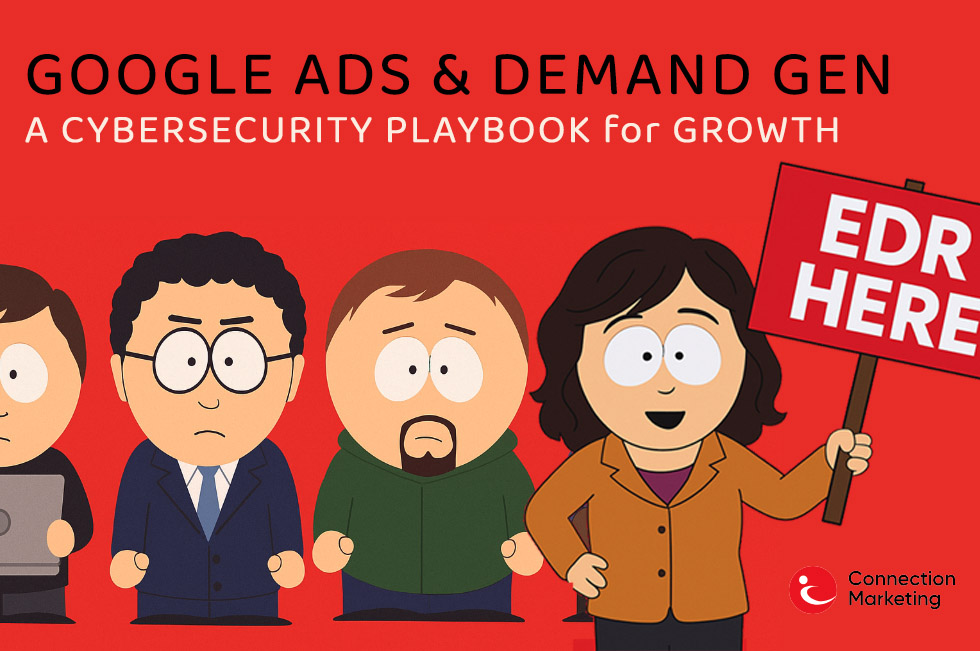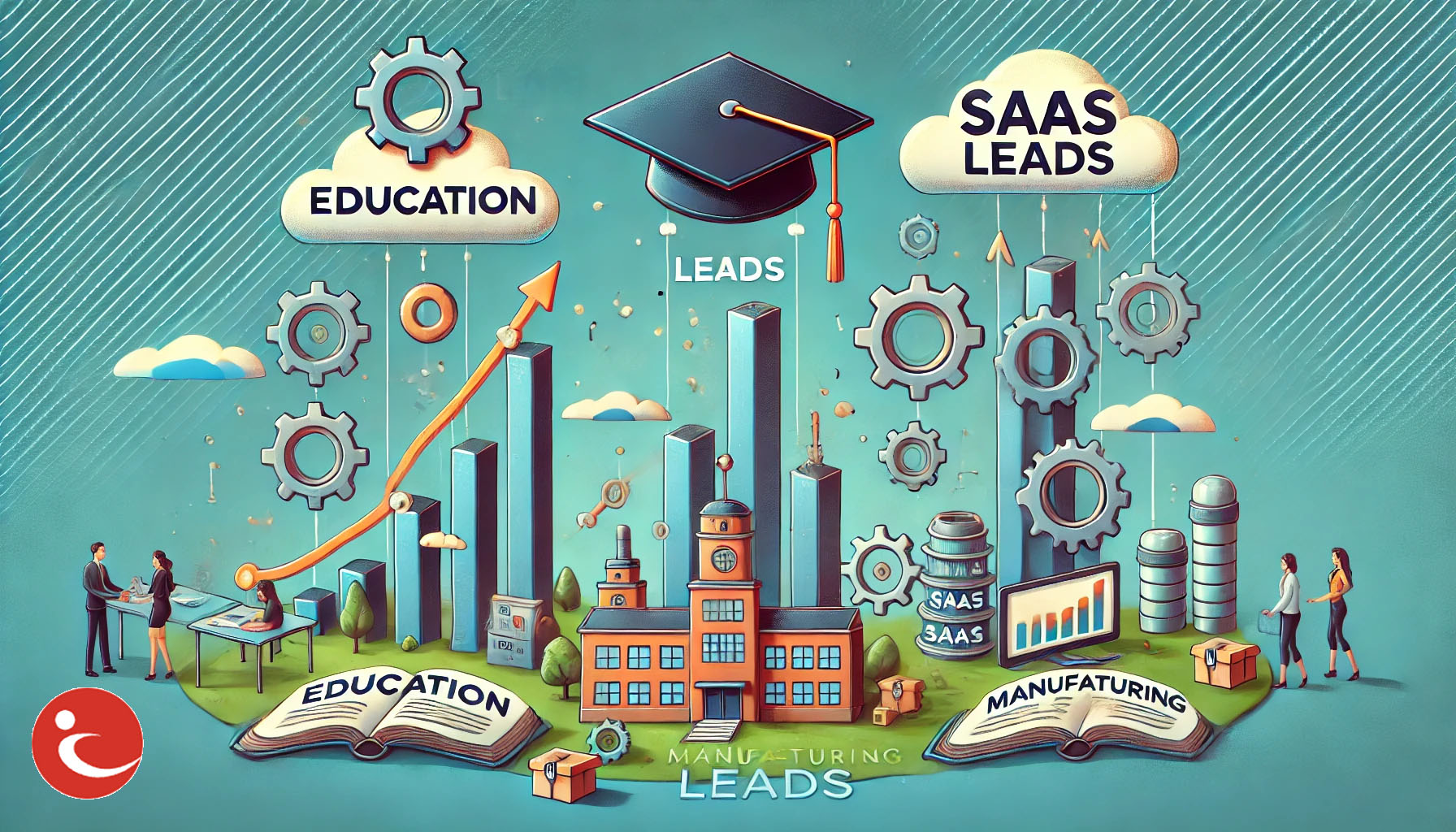Finding the right B2B marketing companies can make or break your success. We all know how crucial it is to reach our target audience effectively and drive lead generation. That’s where specialized B2B marketing expertise comes in handy. It’s not just about promoting your products or services; it’s about creating a marketing strategy that speaks directly to other businesses and meets their unique needs.
When we’re on the hunt for the perfect B2B marketing agency, we need to consider a range of services. From crafting a solid marketing strategy to implementing PPC advertising and diving into marketing analytics, these companies offer a wealth of expertise. In this article, we’ll explore how to find the ideal B2B web marketing agency for your specific requirements. We’ll also look at the key factors to keep in mind during the vetting process and share tips on building a successful partnership with your chosen B2B digital marketing agency.
The Importance of Specialized B2B Marketing Expertise
We’ve all heard the saying, “It’s not what you know, it’s who you know.” But in the world of B2B marketing, it’s both. The B2B landscape has never been as rich with opportunities and as sophisticated as it is today. However, with these opportunities come unique challenges that require specialized expertise to navigate successfully.
Complex sales cycles in B2B
Let’s face it, B2B sales aren’t a walk in the park. We’re dealing with longer, more intricate sales cycles compared to B2C. It’s not just about selling a product; it’s about building relationships and understanding complex business needs. In B2B, we often find ourselves selling to a team rather than an individual, interacting with various stakeholders including managers, IT staff, and executives.
This complexity demands a larger, more experienced sales team to drive conversion. Why? Because B2B buyers take more time to assess a product before purchasing. We need to build stronger relationships with vendors at multiple touch points, which requires a bigger team and a more strategic approach.
Unique challenges of B2B audience targeting
When it comes to B2B marketing, we’re not just throwing a wide net and hoping for the best. We’re dealing with unique challenges that require precision and expertise. A recent survey of U.S. and UK B2B marketers found that the biggest problem they’re facing is that their data isn’t normalized across systems. This makes it difficult to get a clear picture of our target audience and measure our results effectively.
In fact, worldwide, B2B marketers report that the most challenging aspects of using data to drive demand are:
- Measuring results (41%)
- Making data actionable (39%)
- Identifying target audiences and accounts (33%)
To overcome these challenges, we need to invest in the right data and partnerships. We should look for partners whose third-party data is normalized and interoperable across our systems. It’s also crucial to invest in data that’s designed with measurability in mind and is actionable for targeting.
Value of industry-specific knowledge
In the B2B world, generic marketing strategies just don’t cut it. We need to deliver quality, industry-specific content that addresses the unique needs of our target audience. Research from the Content Marketing Institute shows that B2B companies consider content marketing more important than traditional marketing strategies. Why? Because it simply generates more leads.
By producing expert, well-written content within a specific industry, we establish ourselves as trusted brands for our customers’ information needs. We deliver a depth of knowledge that customers will want to have access to because they’ll definitely benefit from it.
This industry-specific approach allows us to create a personal experience for customers interested in a particular sector. We can achieve this customization by selecting clients using geography and demographics, and focusing our efforts on them.
Remember, while B2B buyers may not be as emotionally invested in their purchase decisions as B2C buyers, they are quite rational. They’ll choose brands that will increase their profitability and save costs for them. By delivering targeted and personalized content, we can build lasting relationships and establish ourselves as authorities in our field.
In conclusion, specialized B2B marketing expertise is not just a nice-to-have; it’s a must-have in today’s complex business landscape. By understanding the intricacies of B2B sales cycles, tackling the unique challenges of audience targeting, and leveraging industry-specific knowledge, we can create more effective marketing strategies that drive real results for our businesses.
Key Services Offered by Top B2B Marketing Companies
We’ve seen how crucial specialized B2B marketing expertise is. Now, let’s explore some key services that top B2B marketing companies offer to help businesses thrive in today’s competitive landscape.
Account-based marketing strategies
Account-based marketing (ABM) has become a game-changer in the B2B world. It’s a strategic approach where we focus our marketing efforts on highly targeted accounts that fit our ideal customer profile. Instead of casting a wide net, we’re zeroing in on the big fish.
With ABM, we’re flipping the traditional marketing funnel on its head. We start by identifying and targeting specific high-value accounts that are most likely to convert. This precise targeting helps ensure we focus our efforts on accounts with the highest potential, increasing our chances of success.
One of the best things about ABM is how it aligns our sales and marketing teams. We work together to create a shared strategy and coordinate account-based experiences. This collaboration leads to winning more business as a result.
Here’s a fun fact: 76% of marketers say ABM generates a greater ROI than any other marketing strategy. That’s a pretty compelling reason to give it a shot, don’t you think?
Marketing automation and lead nurturing
Now, let’s talk about marketing automation and lead nurturing. These are like the dynamic duo of B2B marketing. With automation, we can streamline lead generation and nurturing, deliver more sales-qualified leads (SQLs), and boost our ROI.
Marketing automation is all about using digital tools to take over routine marketing tasks like sending emails and segmenting leads. It’s a real time-saver – marketers save about 25 hours a week by using automation tools. That’s more than three full workdays! Imagine what we could do with all that extra time.
But it’s not just about saving time. Automation also helps us live up to evolving B2B expectations. For instance, we can create lead-nurturing email workflows that send out follow-up email sequences at predesignated times. This way, our salespeople don’t have to drop everything when a new lead comes in – our marketing automation tools take care of it for them.
Here’s something to think about: 96% of visitors that come to our website aren’t ready to buy. That’s where lead nurturing comes in. It’s especially essential in industries with long buying cycles, like manufacturing and healthcare technology.
Content marketing for thought leadership
Last but definitely not least, let’s dive into content marketing for thought leadership. This is where we get to show off our expertise and build trust with our audience.
Thought leadership content is all about offering original insights and perspectives that haven’t been extensively explored before. We’re not just rehashing the same old ideas – we’re providing fresh solutions and challenging conventional thinking.
The beauty of thought leadership content is that it positions us as the conversation starter. We become the expert in the field, giving us credibility with both existing and next-generation clients. Plus, when other people copy our content and link back to us as a reference, we get some sweet word-of-mouth promotion.
Remember, thought leadership isn’t just about notoriety. It’s about becoming a trusted source of information for our clients and prospects. As we build trust, we can drive ourselves to the top of the food chain and into a position of overall market leadership.
So there you have it – three key services that top B2B marketing companies offer. By leveraging these strategies, we can take our B2B marketing game to the next level and drive real results for our businesses.
Vetting Process for B2B Marketing Agencies
When we’re on the hunt for the perfect B2B marketing agency, we need to approach it like we’re hiring a high-value team member. It’s not a decision to take lightly – it’s a strategic imperative that can make or break our success. Let’s dive into the vetting process to ensure we find the right partner.
Initial screening and research
We start by clearly defining our goals. Are we looking to increase brand awareness, generate leads, or enhance our search engine rankings? Having clear, measurable objectives will guide us in selecting an agency that specializes in delivering the specific results we need.
Next, we take a close look at the agency’s portfolio and experience. We want to see a track record of working with businesses similar to ours. Their portfolio is a direct reflection of their capabilities and the quality of work they can deliver. We pay attention to the variety of content formats they’ve executed and how they integrate these into a cohesive content strategy.
We also check out their own marketing efforts. After all, it’s their job to attract clients, so their website should grab our attention and describe a growth-driven model that aligns with our goals.
In-depth capability assessment
Now it’s time to dig deeper. We ask open-ended questions about their processes for reporting, goal measurement, and strategy execution. This helps us understand how they operate and forces them to put into words exactly how they plan to help our business grow.
We look for agencies that offer not just a full spectrum of capabilities but also proven experience deploying those services in similar industries. We ask about their approach to content creation, media evaluation, and measurement. The best agencies will focus on helping our buyers, not just filling our sales funnel.
We also inquire about their team structure. It’s crucial to find out who, specifically, will be assigned to our account. We want to avoid getting the “B team” after the contract is signed.
Cultural fit and team compatibility evaluation
Finally, we assess the cultural fit. We look for an agency that aligns with our company’s values, work styles, and communication habits. An agency that resonates with our ethos will be better equipped to understand our vision and convey our brand’s message authentically.
We arrange face-to-face meetings, whether virtual or in-person, to get insights into the expertise and personalities that will be shaping our content strategy. This reveals a lot about the agency’s work ethic, creativity, and passion for our industry.
Remember, the most successful partnerships are between organizations that share similar values and goals. By following this vetting process, we can find an agency that’s not just a service provider, but a true partner in our B2B marketing success.
Establishing a Successful Partnership
Setting clear goals and expectations
When we’re establishing a successful partnership with a B2B marketing company, setting clear goals and expectations is our first crucial step. We need to create a business plan that outlines the partnership’s details, including a timeline of expected results, intended goals, and the responsibilities of both parties. This plan serves as our roadmap, giving us and our team something to focus on as we make smaller decisions that lead to bigger success.
To make our goals more effective, we should follow the SMART framework: Specific, Measurable, Attainable, Relevant, and Time-bound. For instance, we might aim to increase website traffic by 20% or generate 50% more qualified leads within a specific timeframe. These clear, measurable objectives allow us to track our progress and determine success.
Developing communication protocols
Clear communication is the backbone of a healthy and successful B2B relationship. Without it, we risk miscommunication, which can lead to lost revenue, missed opportunities, and broken trust. To avoid these pitfalls, we need to establish a regular meeting schedule to check in and revisit our plan, addressing any gaps and ensuring our goals are being met.
We can develop a set of communication protocols that establish which channel to use for different types of communication. This approach significantly reduces the number of communication threads and improves the quality of our interactions. For example:
- Face-to-face meetings for moments of importance and confidential information exchange
- Video conferences for reviewing materials that need explanation
- Phone calls for detailed instructions and clarifying questions
- Emails for keeping records and sharing detailed information
- Text messages for quick status updates
- Collaboration tools like Slack for team file sharing and conversation threads
Creating a collaborative working relationship
To foster a truly collaborative working relationship, we need to focus on transparency and trust. Being upfront about expectations and responsibilities from the very beginning helps ensure a successful partnership for the duration of the contract.
We should also involve our team in the goal-setting process. Instead of making it a top-down mandate, we can get feedback from our team to see what they’re interested in developing on behalf of the agency. This approach not only brings fresh ideas to the table but also gets everyone on board from the start.
Remember, patience is key. We shouldn’t expect to reach our goals in a day. Instead, let’s set realistic timelines that our team can follow without feeling overwhelmed. And just like our marketing plans for clients, we need to be flexible. We should set aside time, at least monthly, to review our metrics and assess how well we’re trending toward our goals.
By following these steps, we can establish a strong, collaborative partnership that drives results and fosters growth for both parties involved.
Conclusion
To wrap up, finding the right B2B marketing company has a significant influence on your business success. We’ve explored the importance of specialized expertise, key services offered by top agencies, and the steps to vet potential partners. By focusing on account-based marketing, automation, and thought leadership content, you can elevate your B2B marketing game and drive real results.
Remember, the most effective partnerships are built on clear goals, open communication, and a collaborative spirit. By aligning with an agency that shares your values and understands your industry, you’re setting the stage for long-term success. Get in Touch with Us to learn more about how we can help your B2B marketing efforts thrive. In the end, it’s all about finding a partner who can help you navigate the complex B2B landscape and achieve your business objectives.
FAQs
What factors should be considered when selecting a B2B marketing agency?
To choose the right B2B digital marketing agency, start by defining your marketing goals. Look for agencies with proven B2B marketing experience and assess their strategic approaches and tools. Evaluate their content marketing skills and analytical capabilities. It’s also important to check for a cultural fit and effective communication styles. Finally, plan an initial meeting to discuss potential collaboration.
How can I identify the needs of B2B customers?
To identify and prioritize the needs of B2B customers, begin by creating detailed buyer personas. These personas should provide insights into who your customers are, their common challenges, and their values. Understanding your customers in depth allows you to address their most significant problems effectively.
What percentage of revenue should B2B companies allocate to marketing?
B2B companies are generally advised to allocate 2-5% of their revenue to marketing, according to BDC. However, the percentage can vary depending on the industry; B2B product companies might spend about 7.8% of their revenue on marketing, while B2B services typically spend around 5.9%, as per HubSpot’s findings.
How do I choose the right marketing agency for my business?
When choosing a marketing agency for your business, consider the following steps: Explore the range of services the agency offers and evaluate their past experience. Consider their pricing structure and find out how they report their results. Also, reviewing their past results can provide insight into their effectiveness and suitability for your needs.








